Upcoming MA ENG Graduate Courses: 2022-2023
Spring/Summer 2022
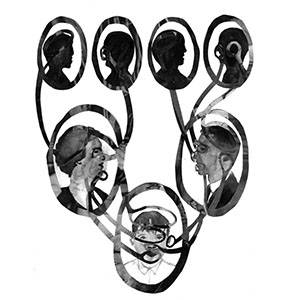
ENG 624: Genre Studies - The Memoir
ENG 624: Genre Studies - The Memoir
Summer 2022
MW 1:00 PM - 4:00 PM
Pew Campus
Professor Sherry Johnson
Intensive study of the historical development of a selected genre (poetry, drama, fiction, literary nonfiction) and of the nature of the genre, focusing on selected works.
This course is designed for students to explore questions of (the development of) identity through the study of memoir, a form of literary nonfiction. As we explore the form and its variety in terms of function, and literary structures, students will consider examples written by authors of their parents, as well as by authors of themselves. We will consider the form in prose, personal essays, film, and the graphic narrative. Together, we seek response to questions such as: what is the role of memory? Of invention? In what ways does the story evoke truth vs simply documenting it? What literary strategies does the author use to help readers feel, experience what they’ve written? Ultimately, this course is a celebration of the writing of life journeys; all will walk away able to discuss and/or think about memoir in critical ways.
Fall 2022

ENG 616: World Literature in English
ENG 616: World Literature in English
Fall 2022
Thursdays, 6:00 PM - 8:50 PM
Pew Campus - EC 420
Professor Brian Deyo
How might we aspire to an adequate collective understanding of the interconnected crises—social, political, economic, cultural, and ecological—that are shaping the present and future of human and planetary life? Moreover, how might such an understanding help us to identify opportunities to transform our relations with each other and the planet for the better? In this graduate seminar we will examine diverse works of world literature and world cinema through a select range of disciplinary perspectives from the human, social, and natural sciences that, taken together, will sensitize us to the fragility and complexity of life in the Capitalocene, a concept that has recently emerged amidst critical discussions—both within and beyond the academy—on the concept of the Anthropocene.
The term, Anthropocene, proposed by Paul Crutzen and Eugene F. Stoermer in 2001 as an index of abrupt and unprecedented anthropogenic environmental change on a planetary scale, has been the focus of contentious and highly nuanced debate for the past two decades. We’ll begin our work together by reading select critical interventions in the “Anthropocene debate” to become familiar with the strengths and limitations of the concept. This will prepare us to reflect on the value and utility of a range of alternatives, with a special focus on the Capitalocene, what Jason W. Moore succinctly refers to as an “historical era [dating to 1450] shaped by relations privileging the endless accumulation of capital” (Capitalism in the Web of Life, 173). Afterwards, we’ll read select sections of Raj Patel and Jason W. Moore’s A History of the World in Seven Cheap Things: A Guide to Capitalism, Nature, and the Future of the Planet, which will provide a methodology for studying the social and ecological consequences of the mass production of cheap commodities (e.g., sugar, rubber, soya) in the Capitalocene through world literature and world cinema. Employing and testing this methodology as a novel way to engage with and study narrative art will also furnish us with the knowledge and skills required to perform the work of collectively forging and affirming new social imaginaries that organize our relations with the planet and each other differently—and in decisive contrast with the current order of things.
Topics we’ll cover: slavery; histories of European colonialism and U.S. imperialism in Latin America and their legacies; mining and agriculture in Latin America from the colonial era to the present; indigenous societies and cultures; human-animal relations; neocolonialism; neoliberalism; deforestation; factory farming; climate change; epidemics and pandemics; globalization; the rise of capitalism and consumerism in contemporary China.
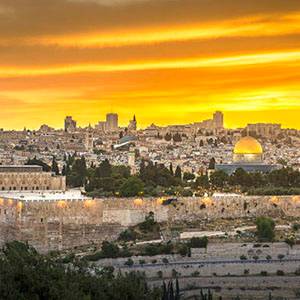
ENG 624: Genre Studies - The Novel
ENG 624 01: Genre Studies: The Novel - Narrating a Nation-State’s Emergence/ Narrating a People’s Dispossession
Fall 2022
Wednesdays, 6:00 PM - 8:50 PM
Pew Campus - EC 417
Professor David Alvarez
Between 1947 and 1949, one of the 20th century’s most significant events took place in the territory that was then known as Palestine: a war which led to the founding of the modern nation-state of Israel and to the concomitant dispossession of the Palestinian people. Ever since the war’s conclusion, creative writers have imaginatively engaged the armed conflict as well its still unfolding aftermaths. In this course we will study four novels--two Israeli and two Palestinian--that engage either the events of the war itself or their still echoing ramifications. In addition, we’ll examine a range of contextual materials drawn from various fields and disciplines. We’ll also look at a variety of cultural ephemera, including photos of the war and excerpts from films that thematize it. In our contextually-informed close readings of the novels, we’ll examine their structure and style, and we’ll consider straightforwardly literary concerns, such as the significance of the desert motif in the two Palestinian novels, or of allusions to the Hebrew Bible in the Israeli texts. However, along the way we’ll also address larger questions, such as the nexus between the novel form and the project of nation-building, or the relationship between literature and collective memory.
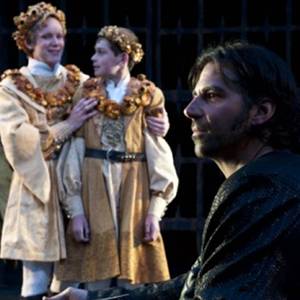
ENG 663: Shakespeare
ENG 663: Shakespeare
Fall 2022
Mondays, 6:00 PM - 8:50 PM
LHH 119
Professor Jo Miller
In this seminar we will read plays from all of Shakespeare’s four major genres: History, Comedy, Tragedy, and Romance. In addition to practicing the arts of close reading and literary analysis, these plays will allow us to interrogate our own cultural values and beliefs with questions about gender and sexuality, identity, race, class, and power. This course is not an introduction to Shakespeare’s genius, nor an exercise in “Bardolatry.” Rather, our challenge will be to escape our institutionalized view of Shakespeare and read his plays anew, as if for the first time, and to understand why (as well as how) they are continually produced and reproduced, and what influences they still have on us, and we on them. We will engage Shakespeare’s works on many levels, as literary texts, of course, but also as dramatic scripts, historical artifacts, stage plays, and film texts. Our main goal is to allow Shakespeare’s writings, flawed as they are in their transmission through time, to elicit our most complex and articulate responses.
Winter 2023
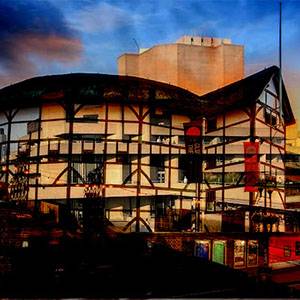
ENG 603: Seminar in British Literature
ENG 603: Seminar in British Literature - British Drama from Medieval England to Today
Winter 2023
Thursdays, 6:00 PM - 8:50 PM
LHH 111
Professor Rachel Anderson
This course will survey British literature through the lens of performance. We’ll be looking at how English (and later British) theatre developed from the morality and mystery plays of late medieval England and then exploded in popularity during the Early Modern period of Shakespeare. We’ll then look at how theatre all but disappeared under the Puritans during the English civil war, but then made a delightful comeback during the Restoration of the monarchy in the 1660s with the works of authors like John Dryden and Aphra Behn. We’ll look at the comic operettas of Gilbert and Sullivan, the development of Victorian melodrama, and the rise of the socially conscious realist theatre of George Bernard Shaw during the late 1800s/early 1900s. Finally, we’ll examine British post-war absurdist theatre, paying particular attention to the works of Harold Pinter, Carol Churchill, and Tom Stoppard, among others. We’ll also spend some time with the “in-yer-face” playwrights of the 1990s, including Sarah Kane and Martin McDonagh, and look at how 21st century playwrights, like Alan Bennett and Lolita Chakrabarti, negotiate Britain’s post-empire, multicultural existence. Through this journey, students will not only gain an overview of the development of English/British theatre over more than five centuries, they’ll also gain a clear understanding of how history, politics, and social/cultural movements impact literature.
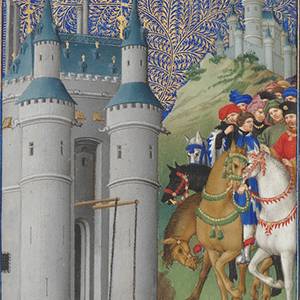
ENG 651: Topic Seminar - Medieval Literature: Greatest Hits
ENG 651 01: Topic Seminar - Medieval Literature: Greatest Hits
Winter 2023
Mondays, 6:00 PM - 8:50 PM
LHH 111
Professor Kathleen Blumreich
Contrary to popular opinion, the medieval period was neither “dark” nor was the literature it produced boring, unsophisticated, or overly religious. To better understand and appreciate the cultural richness of the Middle Ages, we will focus this semester on an array of texts ranging in genre and date of composition from the mid-11th to the late 14th centuries. A tentative reading list includes work by: Abelard and Heloise, Marie de France, Chretien de Troyes, Chaucer, Julian of Norwich.
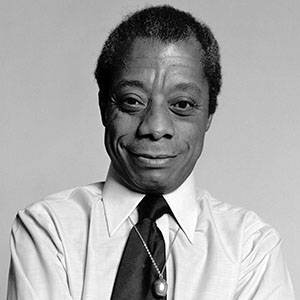
ENG 661: Author or Topic Seminar - James Baldwin
ENG 661: Author or Topic Seminar - James Baldwin
Winter 2023
Wednesdays, 6:00 PM - 8:50 PM
Hybrid - EC 316
Professor Sherry Johnson
The pre-eminent essayist and novelist, James Baldwin, is the focus of this seminar. Because of the ways that Baldwin's writing forces his readers to confront the definition of what it means to be an US-American, the writer is widely described as one of the US's most important thinkers of the 20th century. As students read through his works, they will consider the importance of self-examination and reflection in one of Baldwin's self-articulated goals: "I want to be an honest man and a good writer." The reading list will be a compilation of Baldwin's essays and novels, all of which address the development of identity(s) in the United States of America (and abroad) from the 1950s to the 1980s in critical ways.

